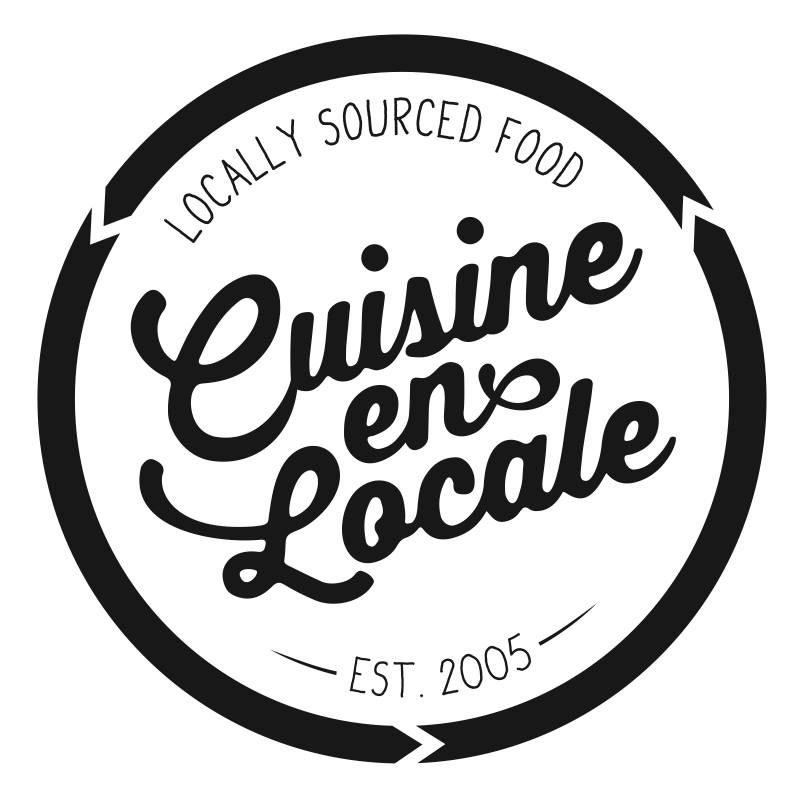
Cuisine en Locale
156 Highland Ave, Somerville, MA
Using all local ingredients in Massachusetts is no simple task, and we are often asked why we bother.
The simple answer strikes to the heart of the company's mission:
To support the growth of farms and farmers, and increase the value of food in the area where we live, and eat.
It’s a selfish mission, really: we want to eat real food, and we want to offer our family and friends that same opportunity. We are grateful every day for the farmers we buy our food from, and they are grateful for us. It is a simple, solid relationship of which we are proud. We would be honored to include you on the list of patrons who also care to put their money into food value.
WHY DO I EAT LOCAL?
Three basic reasons stand out:
Flavour
Food that has been harvested, processed and preserved quickly loses its flavour
Subtle notes disappear and lots of flavour enhancers, like salt and MSG, are needed to make it taste like anything
As a chef I want the food that tastes the best to begin with so my food tastes great without having to be heavily salted
Community
?When you support local food makers, and go to places where they gather to sell food, you get the benefit of interacting with like minded people and supporting the community in which you live.
If you know your farmer and you know your food you have good friends for life.
Putting your money directly into the hands of local makers insures a local economy to be enjoyed by everyone.
Nutrition
When food is picked and processed it loses much of it’s vital nutritive benefits.
Milk is less nutritive when it’s been processed too.
Studies have shown that as soon as some vegetables are picked they begin to lose nutrients. And while sweet potatoes may prove an exception to this rule, the high-heat high-pressure process of canning vegetables takes out many vital enzymes, vitamins, and minerals in fruits and vegetables.
We now know that the pollen contained in local raw honey can protect against seasonal allergies, and grass fed meat is leaner than factory farmed meat and also contains higher amounts of iron, vitamin A, and omega fatty acids.
I know that it is not practical or realistic to eat all local food every day for every meal if you live in a city, far from a farm. But just because it is hard to be perfect doesn’t mean that it is not worth making an effort to eat locally produced foods, and foods in season. Strawberries from huge factory farms in California appear year round at Whole Foods all over New England. Just because they are there doesn’t mean it is right to buy them. As a culture we are accustomed to being able to have whatever we want whenever we want it, but it is a fuel heavy and wasteful way that we have learned to live.
The only way to fix this enormously broken system we are so deeply entrenched in is to make change every day, wherever we can. ?That is why I eat local.
I grew up eating good food. My mom cooked dinner every night from scratch. Take out was unheard of and we rarely ate at restaurants. We dined on roasted chicken and potatoes, meat loaf with katsup and beans, fresh salad with every meal. I was admonished to “eat my yellow vegetable”. I learned to cook from my mother, and Julia Child. There was never a question of whether we would be going out for dinner.
When I left my family home I continued to cook for myself, but as I moved about the country I started to notice that there was a startling growth of strip malls and fast food and that more and more people were eating out at inexpensive chains. I began to eat fast food on a regular basis, along with the other people of my age group. I believed that the food I was eating was not particularly good, but it never occurred to me that it was actually bad for me- that it was broken in ways that I have been understanding only in the past ten years. I knew it was too salty and that salt was bad for me, but I was in my twenties and more concerned with my clothes and what kind of car I was driving than with my arterial health.
I was a s
